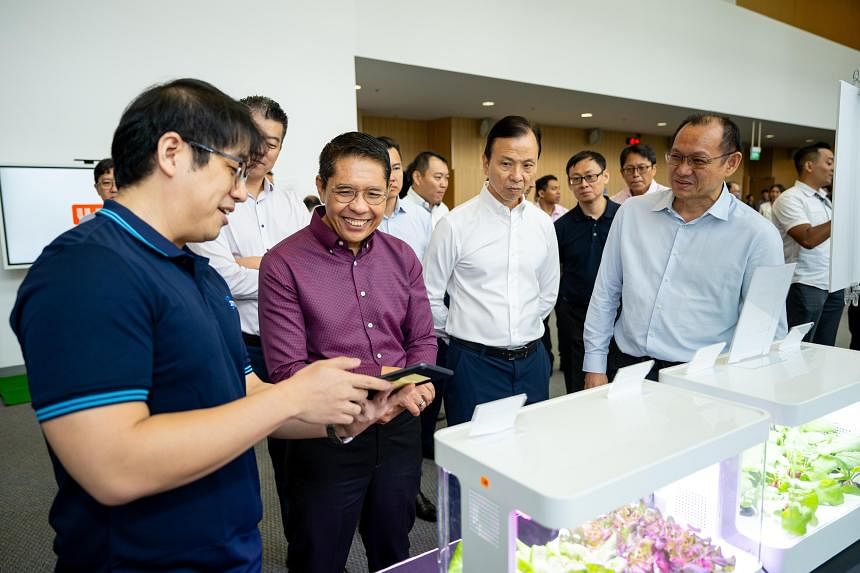SINGAPORE - Small firms here looking to improve their sustainability will be able to exchange ideas and pick up best practices from larger organisations through a new platform.
The Alliance for Sustainability Innovation, launched on Tuesday, will connect 180 small and medium-sized enterprises (SMEs) from various sectors with eight mentors for a start.
SMEs that participate will be able to attend workshops with experts, training sessions customised to their sectors and consultations on technology or know-how which they can use to make their operations more sustainable.
The mentors will also guide SMEs in creating and completing impactful projects. The first eight are senior executives from major companies and organisations, namely Amazon Web Services, CPG Corporation, Global Green Connect, KPMG Singapore, Schneider Electric, Singtel, the Singapore Manufacturing Federation and TUV-SUD.
The platform is run by Nanyang Polytechnic (NYP) and is free to join. The polytechnic also offers a paid consultancy service to help enterprises with sustainability projects, through training or sourcing for a solution.
NYP principal and chief executive Russell Chan said: “We were hearing companies, especially SMEs – which still represent 99 per cent of businesses here in Singapore – asking for help to decipher the complexities of sustainability, for assistance in their own operations to be less carbon-heavy.”
Minister in the Prime Minister’s Office Maliki Osman, who is also Second Minister for Education and Foreign Affairs, launched the new alliance on Tuesday at an event at NYP.
In a speech, he highlighted the importance of sustainability innovation to Singapore’s society and businesses.
Global warming will likely lead to higher operating costs for companies, as they will have to pay higher premiums to insure against extreme weather events, and outbid one another to obtain the raw materials needed to produce goods, he said.
At the same time, consumers may increasingly demand sustainable goods and services.
“Hence, it is really important for companies to transform their businesses and create greater long-term business value,” said the minister.
“For example, companies can adopt innovative solutions to reduce the carbon footprint of their businesses, and attract an increasing number of environmentally conscious consumers and employees.”
Dr Maliki also said that companies play a key role in partnering institutes of higher learning to prepare students for the workplace amid the green transition, such as through collaborating on work-study programmes which equip students with the most up-to-date knowledge and skills.
This comes as the growth of the green economy will create jobs such as carbon traders and energy storage system engineers.
One of the SMEs that has joined the Alliance for Sustainability Innovation is technology firm Styl Solutions. Its founder and chief executive Terry Tan told The Straits Times he hopes to send his employees for sustainability workshops through the platform.
“We are currently investing in creating sustainability-related products, though they are not profitable yet. I hope going for workshops can raise awareness among my staff because I want them to be as passionate about this area as I am,” he said.
A remote-controlled indoor farming solution called FarmBox is among the products developed by the company, which employs about 90 people in Singapore and Vietnam. It is also behind the smart watch for the POSB Smart Buddy cashless payments scheme used by pupils and students in schools.
Mr Tan said he has been engaging NYP for consulting services for close to 10 years. His engineers get to learn from the polytechnic’s researchers, who also help test the firm’s products to make them more robust.
Other recent efforts by polytechnics to help SMEs go green include the launch of the GO Carbon Management Programme by Republic Polytechnic and industry group Singapore Logistics Association in September. This aims to help SME owners and employees understand the carbon emissions produced by their operations and how to measure them, so they can reduce their carbon footprint.
Also in September, Singapore Polytechnic and sustainability software firm Envision Digital agreed to explore the development of a Net Zero Co-Innovation Lab to provide SMEs with tools and knowledge to decarbonise their operations effectively.


